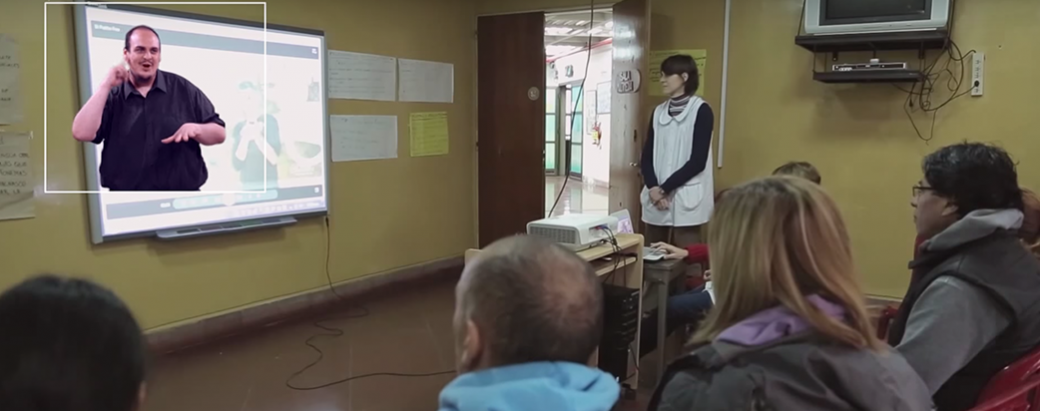
About the Project
This project is one of the 2015 WISE Awards winners.
More than 90 percent of deaf children have hearing parents and teachers who do not communicate with them properly. Deaf children do not participate in conversations, may never have been told a story and have difficulties developing language and thinking. Even among deaf or hearing impaired children without any intellectual disability, the rate of functional illiteracy is high. How can their state of exclusion and gaps in language development be closed?
Virtual Videobooks in Argentine Sign Language (LSA) is a gateway to cultural inclusion for deaf children and adolescents through literature and education. The project created the first free access site on the Internet comprising story books presented in LSA by deaf readers. The books have voiceover so they can be enjoyed by hearing families and teachers. So far, two collections of contemporary books and classic tales have been produced, and a new collection of stories for teenagers is being developed.
Videobooks is an innovative solution that uses technology to reach isolated deaf children in rural areas, connect deaf children and deaf adults, promote reading, encourage the use of Sign Language, and transform education. Each month around 3,000 people visit the site from 40 countries, mostly in Latin America.
Context and Issue
Solution and Impact
Access to written language and literature promotes education and social participation by allowing deaf children to share experiences and references with hearing children, and to better understand their environment and make their own decisions. Books in Sign Language with voiceover provide deaf children with access to Spanish texts and help acquaint hearing families and teachers with Sign Language. Videobooks supports valuable interaction between deaf children and hearing adults; it presents children with opportunities to encounter and identify with deaf people or characters within a bilingual intercultural educational model.
In 2013 the Videobooks webpage recorded more than 32,000 visits and over 1 million hits from 40 countries (an average of 3,000 visits per month). The books were downloaded from remote villages. The site, included in the Ministry of Education’s Conectar Igualdad program, received the national VivaLectura award and the international FRIDA award. Teachers and parents from around the country have reported how they use the stories with the children. Authors have offered their works. It is estimated that approximately 12,000 deaf children and adolescents have benefited from Videobooks. In 2014 the project obtained the Iberoamerican Good practice recognition and was selected as a WISE Awards finalist.
Future Developments
Since the project was selected as a model of literary access by UNICEF they will carry on various sign language versions of the International Convention on the Rights of Persons with Disabilities for Children and will elaborate a protocol to create educational materials in sign language with Uruguay, Paraguay, Brazil, and Mexico.


